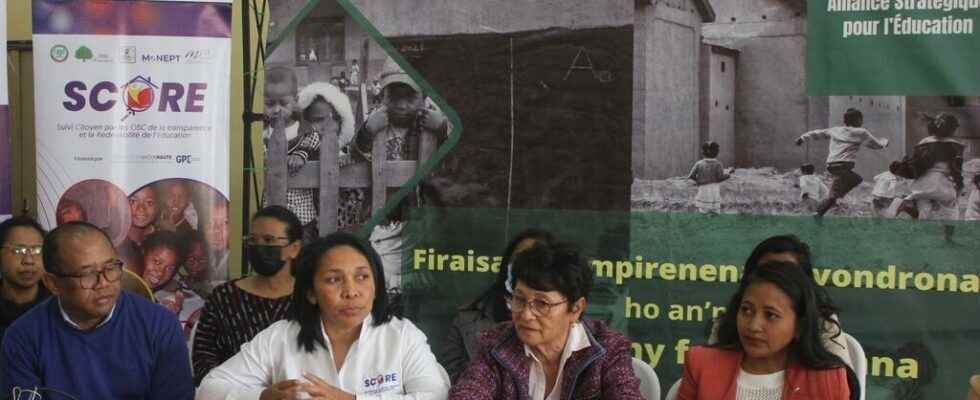The organizations involved in this sector have listed their recommendations to overcome the delay of the Big Island in this area. After a National Forum organized at the beginning of August and with the Summit on the transformation of education to be held next month in New York in sight, civil society shared the changes to be undertaken by the Malagasy State, during of a press conference, Thursday, August 11, in the capital.
With our correspondent in Madagascar, Laetitia Bezain
While the school results of students on the Big Island have deteriorated over the past ten years, one of the challenges is to improve the quality of education and distribute qualified teachers fairly according to the needs of the regions, explains Randriamananjara Fara, General Secretary of the National Movement for Education for All:
” In most cases, the trained teachers no longer stay in their place of recruitment so the problems still persist and it becomes a vicious circle where local communities are forced to fill the gap in terms of personnel. FRAM teachers are locally recruited teachers. There is no minimum level but we recruit those who are available. »
80% of these non-civil servant teachers, called FRAM, recruited at community level, do not have an adequate diploma, according to figures from the World Bank.
” The situation of education in Madagascar is catastrophic and everyone recognizes it, remark Lily Razafimbelo, researcher and teacher in documentary information sciences at the University of Antananarivo and member of the Collective of citizens and citizen organizations. This concerns both the level of students in basic subjects and the inequalities between cities and the countryside and it is a huge issue that these inequalities are erased. We have insisted that the FRAMs benefit from continuous training so that they can acquire the necessary skills to be able to teach. We also recommended restoring training centers in the regions and giving them the necessary means to be able to train future teachers. »
In its five areas of recommendations, civil society also pleads for an increase in the budget allocated to education to 20% of the general state budget, against 15% currently.
